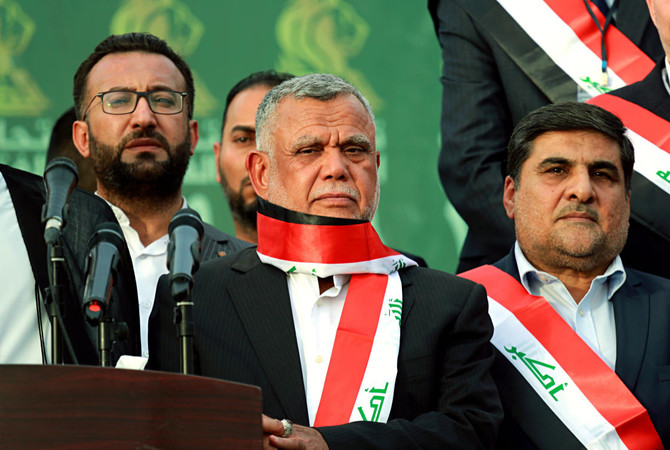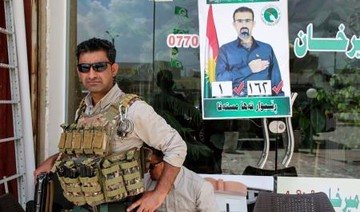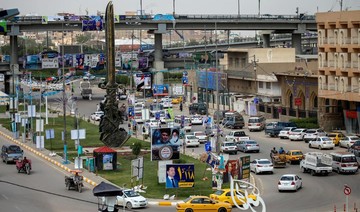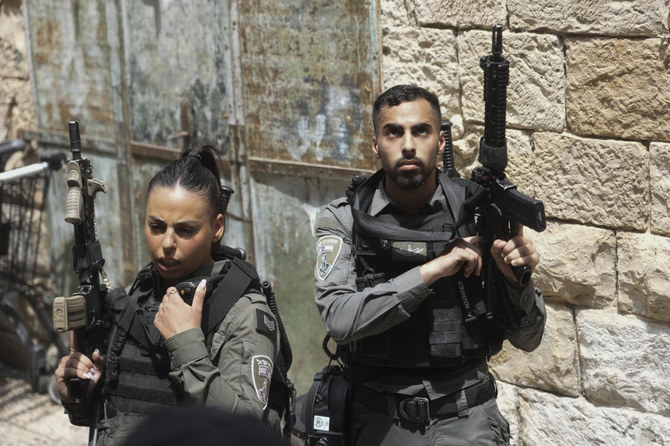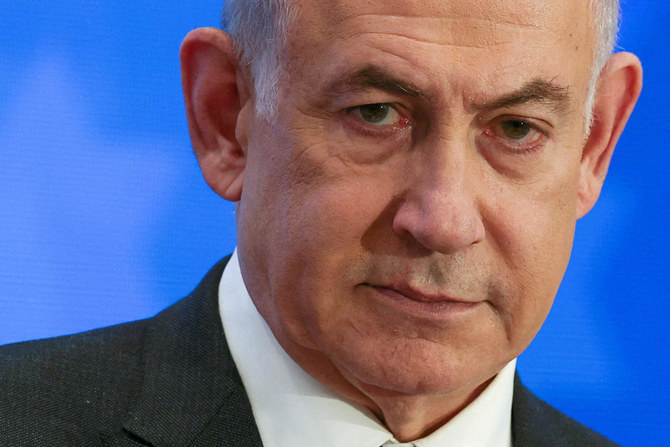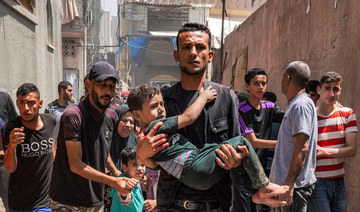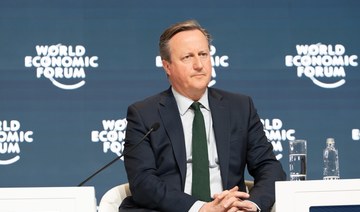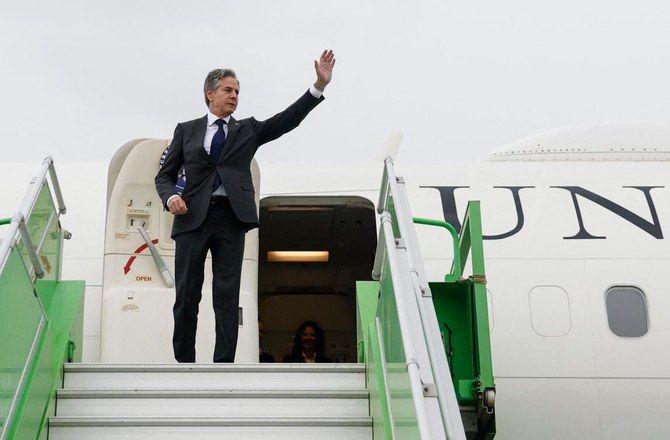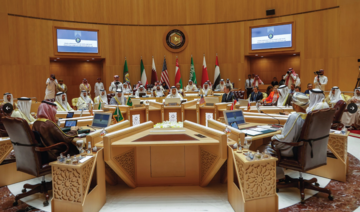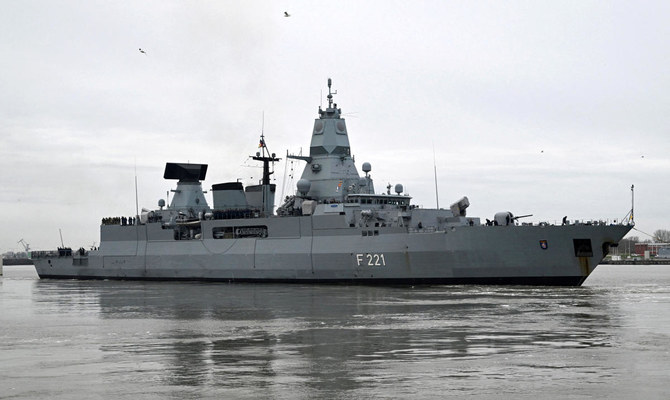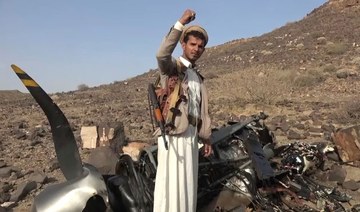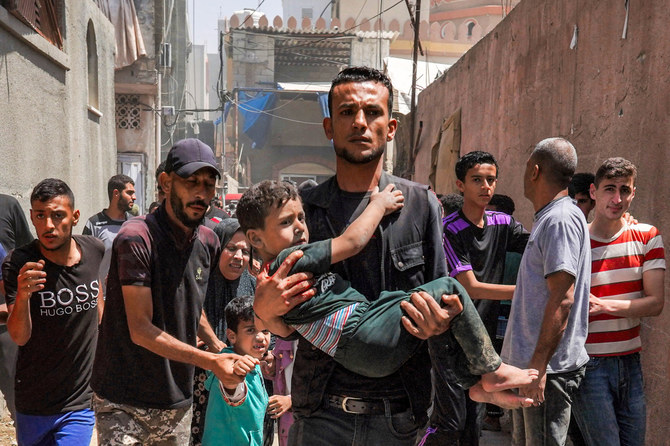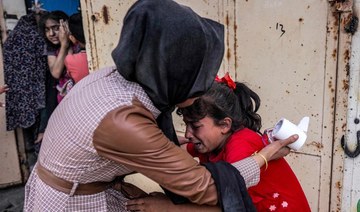BAGHDAD: If Hadi Al-Amiri triumphs in Iraq’s election on Saturday it would be a crowning achievement for the dissident turned Shia militia leader who spent more than two decades fighting Saddam Hussein from exile in Iran.
Leader of the Badr Organization that was the backbone of the volunteer forces fighting Daesh, Amiri hopes to capitalize on his success on the battlefield in what is expected to be a tight three-way race for the premiership.
Victory for Amiri would be a win for Iran as the 63-year-old militia leader has forged close ties with Iraq’s Shia neighbor — but he would also have to balance Tehran’s interests in Iraq with Washington’s often competing goals.
The winner of the election will face the daunting task of rebuilding Iraq after the devastating three-year war against the ultra-hard-line Sunni militants, as well as fighting the corruption that consumes much of the OPEC member’s oil revenue.
Like the other frontrunners, incumbent Haider Al-Abadi and former prime minister Nuri Al-Maliki, Amiri has pledged to restore state institutions and provide badly needed health and education services.
Amiri’s own record in government, a four-year stint as transport minister, was undistinguished.
Instead, Amiri aims to exploit his leading role in the Popular Mobilization Forces, the mainly Shia, Iranian-backed militias that rallied to confront the self-declared Daesh caliphate in Iraq four years ago.
“His lucky star rose in 2014. Amiri the unconvincing minister vanished and the guerrilla commander re-emerged when the Shias of Iraq needed him most,” said a Shia scholar and expert in former Shia opposition movements.
OLD FRIENDS
Amiri’s Iranian connections forged during long years in exile, particularly his ties with Iran’s Islamic Revolutionary Guard Corps, were central to his rise to prominence, first challenging and finally helping defeat IS.
The Guards trained and armed the Popular Mobilization forces set up in response to a fatwa from Iraq’s top Shia cleric, Grand Ayatollah Ali Sistani.
As leader of the Badr Organization, Amiri, a Farsi speaker, was often seen discussing offensives in Iraq with the Guards’ commander of foreign operations, Qassem Soleimani.
The numerous photos from the battlefront of Amiri with Soleimani in military fatigues, embracing and looking euphoric after evicting IS fighters, have personalized an old friendship.
Portraits of Iranian Supreme Leader Ali Khamenei are also a fixture in Badr offices, a reminder of the days when the group was the armed wing of Iraq’s Shia opposition, based in Iran.
Born in the mixed Sunni-Shia province of Diyala east of Baghdad, Amiri fled to Iran in his 20s after studying economics in Baghdad. Sentenced to death by Saddam, Amiri made Iran his second home for more than two decades.
Then, like Al-Maliki and Abadi, he returned from exile after the 2003 US-led invasion which overthrew Saddam.
Amiri embedded Badr members in key security positions purged of Saddam’s Baath Party officers but showed his pragmatic streak by avoiding clashes with US forces during their eight-year occupation.
Opponents accuse his Badr organization of assassinations and widespread abuses against Sunnis detained in secret prisons run by the group following the US-led invasion.
Kareem Nuri, Amiri’s media adviser and a candidate on his list, denied the accusations saying they were designed to “distort the reputation of Badr.”
BALANCING ACT
Despite his close ties with Iran, Amiri has kept communication open lines with American diplomats in Baghdad, which would be a help were he to win given the continued military and economic importance of the United States to Iraq.
The United States retrained and assisted Iraqi government forces led by Abadi. It has provided billions of dollars in aid to the cash-strapped government and has actively encouraged Gulf and other foreign investors to help rebuild the country.
US-led coalition forces also operated in the same area as tens of thousands of Shia militiamen during the war against Daesh which culminated last year with the capture of Mosul. Despite the anti-American rhetoric of several militia leaders — other than Amiri — there were no major incidents.
“The Americans are able to work with Amiri and there is no reason to believe he will take Iraq to Iran unless he is forced to choose between the two,” said one Western diplomat.
That difficult choice could fall on Iraq’s next prime minister, however, if US President Donald Trump decides to reimpose sanctions on Iran lifted after a 2015 deal restraining its nuclear program.
Amiri says under his leadership Iraq would seek relations with all neighbors and not be dependent on Iran.
“Our hearts are open and hands are stretched, we want Iraq to be the master of the region, the center around which others will revolve. Iraq’s stature cannot allow it to be a tail for this country or that country,” he said.
‘TIME HAS COME’
His opponents are skeptical, saying his historic loyalty to Tehran means his actions will be dictated by Iranian interests.
They also question the image he is projecting of an outsider and military commander not involved in the political mismanagement, corruption and nepotism plaguing the country.
Critics point to his performance as transport minister from 2010 to 2014, including an incident in 2014 when he forced a passenger plane flying to Iraq to turn back in mid-air to collect his son who had missed the departure from Beirut.
Iraq’s road, railroads and airports didn’t improve under his watch, even though the government earned tens of billions of dollars from extra oil when crude was above $100 a barrel.
Amiri’s campaign has sought to position him above the country’s sectarian divisions and political failings, stressing his role in the Popular Mobilization forces, which some Sunni fighters joined too.
“I am a Popular Mobilization commander and it is normal that I’m running on (Amiri’s) list,” said Yazan Al-Jubouri, a Sunni standing for parliament in Salahuddin province north of Baghdad.
The logo of Amiri’s “Fateh,” or Conquest, list of candidates is a golden lion’s head on a green background, to project an image of strength and security as well as his Islamic ideology.
His slogan is simple: “Iraq’s time has come.”


